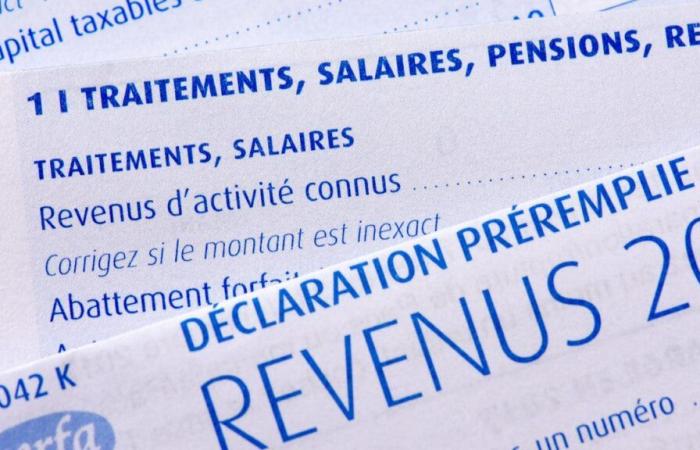The tax declaration season is still far away, but at the moment, some tax adjustments are being discussed in the Assembly, within the framework of the Budget 2025 law. Among the new features for the coming year? A new box to check in the declaration form – but only in certain cases. This system, introduced by several amendments to the 2025 finance law, aims to strengthen controls while optimizing the information available to the tax administration. It is therefore essential to fully understand this new feature to avoid any oversights and, above all, to optimize your tax situation!
Taxes 2025: what are the new features provided for by the Budget law?
It's necessary pay off the debt ! The finance bill for 2025 mainly focuses on rebalancing the state budget, and the government's strategy involves in particular a targeted increase in taxation for the wealthiest households and for certain income categories. In 2025, the highest incomes will be subject to a differential contribution, to reach a minimum tax rate of 20%. This measure should affect around 65,000 very wealthy households and could bring in up toat 2 billion euros per year.
Furthermore, the tax regime applicable to non-professional furnished rental companies is also changing: capital gain on resale will be increased by integrating past depreciation, which will increase taxation for this type of investment. For the majority of households, however, little change is expected, other than adjustment of tax brackets following l’inflation (+2%). But be careful, other measures could be adopted within the framework of parliamentary discussions, targeting in particular certain tax advantages of the financial income and placements !
The new box that must be checked in the 2025 tax return
Among the adjustments to the tax return in 2025, a new box will be introduced specifically for households benefiting from personal services (and therefore, tax credits). This obligation was introduced in the Budget bill by two amendments, since approved by Parliament, and aimed at making the use of tax credits more transparent and “controllable”. The taxpayers concerned will now have to inform the organization which they use, whether for services cleaning, gardening or even academic support.
In practice, this box aims to improve the traceability tax credits, in a context where these measures represent a significant cost for the State, estimated at 6.1 billion euros in 2024. This reinforced monitoring should thus make it possible to prevent fraud and abuse, guaranteeing that the tax credit benefits the households involved in a legitimate approach. This device could also pave the way for future revisions, with a possibility of modulation of tax advantages according to income.
Taxes: the choices you need to make to reduce them (now)
Faced with these changes – and others to be expected, your tax context is likely to evolve in 2025! It is therefore better to anticipate… And try now to reduce the bill. Here are some ideas for reduce your tax :
- Adjust your taxable income for 2024:is one of the most effective ways to reduce your taxes in 2025! To do this, working households can optimize their professional expenses, while landlords can opt for the real regime if expenses are high. Certain expenses such as alimony or caring for an elderly person can also be deducted from taxable income.
- Maximize savings on a Retirement Savings Plan (PER): payments made to a PER are deductible from taxable income, up to a certain ceiling. This tax advantage is particularly interesting for households which are subject to a high tax rate, and who can then make substantial savings.
- Take advantage of savings exempt from withholding taxes: eDue to the debates on a potential increase in the single flat-rate levy (PFU) on financial income, it may be relevant to now favor exempt products, such as regulated savings accounts or PEAs of more than five years, in order to maintain flexibility financial without increasing the tax burden.
- Invest in eligible real estate schemes: Even if certain investments such as Pinel, Denormandie or Malraux require a certain period of time before being eligible for tax reductions, they can represent an interesting choice for households considering a light property investment in terms of tax. Also think about tax SCPIs, which can provide immediate benefits while meeting the tax criteria of current systems.
- Anticipate expenses that are deductible or eligible for tax credits: home employment expenses, childcare costs, and electric vehicle equipment costs are other options which, combined, allow you to benefit from significant reductions.
While the tax environment is getting tougher for the wealthiest taxpayers and certain investors, remember to anticipate the new measures and adjust your choices before the end of the year. This is the best way to optimize your tax situation!






